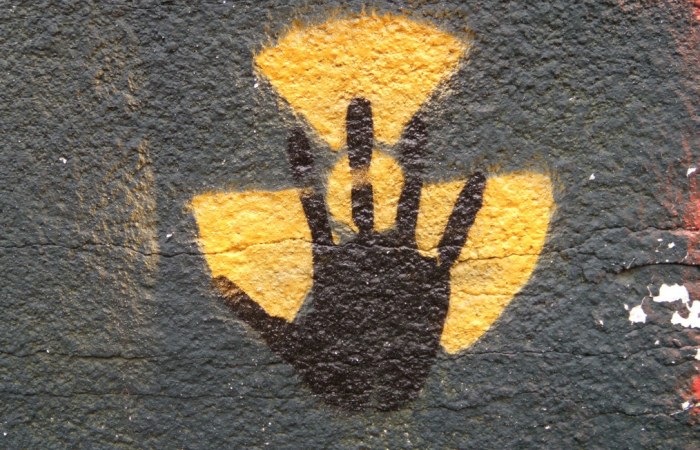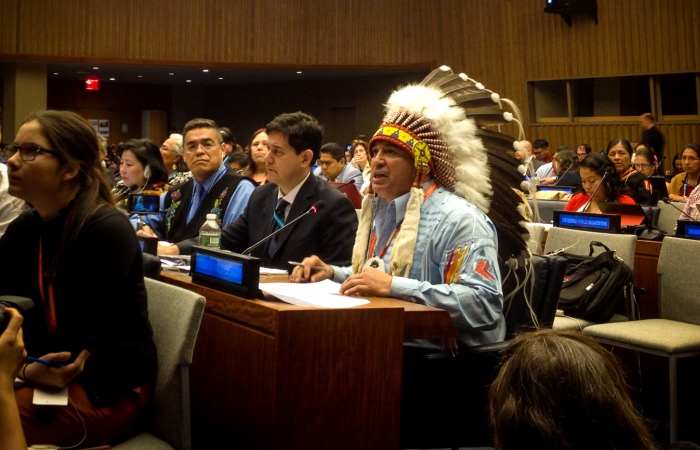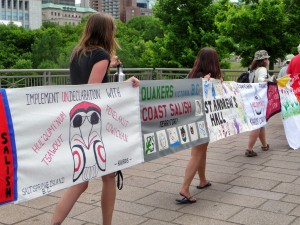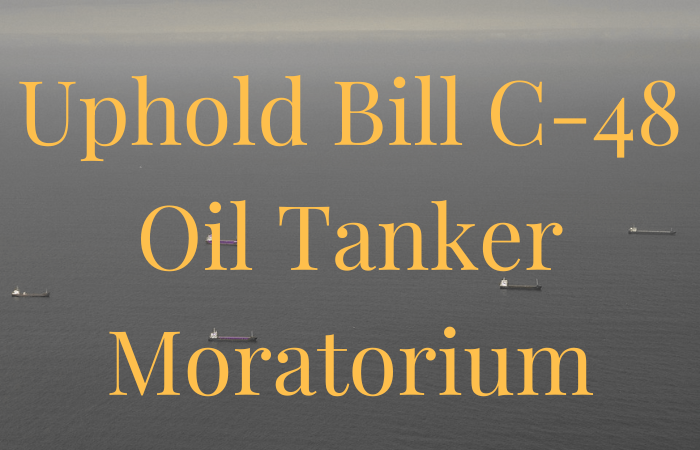
Friends support a world free of nuclear weapons
February 24, 2016
Joint statement at UNPFII 2016
May 12, 2016Quaker Response on Call to Action #48
Truth and Reconciliation Commission of Canada,
Implementing the UN Declaration on the Rights of Indigenous Peoples
#48. We call upon the church parties to the Settlement Agreement, and all other faith groups and interfaith social justice groups in Canada who have not already done so, to formally adopt and comply with the principles, norms, and standards of the United Nations Declaration on the Rights of Indigenous Peoples as a framework for reconciliation. This would include, but not be limited to, the following commitments:
- Ensuring that their institutions, policies, programs and practices comply with the United Nations Declaration on the Rights of Indigenous Peoples.
- Respecting Indigenous peoples’ right to self-determination in spiritual matters, including the right to practise, develop, and teach their own spiritual and religious traditions, customs, and ceremonies, consistent with Article 12:1 of the United Nations Declaration on the Rights of Indigenous Peoples.
- Engaging in ongoing public dialogue and actions to support the United Nations Declaration on the Rights of Indigenous Peoples.
- Issuing a statement no later than March 31, 2016, from all religious denominations and faith groups, as to how they will implement the United Nations Declaration on the Rights of Indigenous Peoples.

Quakers from across Canada were among those who stitched together banners in Ottawa to show support for the UN Declaration on the Rights of Indigenous Peoples
Reconciliation, as Commissioner Chief Wilton Littlechild stated, asks all involved to “open your mind and be willing to learn, and to link arms with Indigenous Peoples as we work together to heal and secure a better future.”
Canadian Yearly Meeting (the national body) of the Religious Society of Friends (Quakers) has endorsed, celebrated and committed to implement the UN Declaration on the Rights of Indigenous Peoples (PDF).
The Declaration affirms Indigenous Peoples’ human rights including the right to self-determination and rights to their traditional lands, territories and resources, as well as protection from discrimination and genocide. It also recognizes the right of Indigenous peoples to have meaningful control over their own lives including culture, religion, language, education and health. The Declaration instructs governments to obtain free, prior and informed consent when making decisions affecting Indigenous peoples.
Canadian Quakers have issued a statement formally repudiating the Doctrine of Discovery (PDF).
Canadian Quakers have formally responded to the work of the TRC, and have committed to a progress report in one year’s time (PDF).
Canadian Friends Service Committee (CFSC), the peace and justice body of Quakers in Canada, has ongoing work that responds to Call to Action #48 in a multitude of ways, internationally, nationally, and locally, both within and beyond the Quaker community. For the past two decades, CFSC has participated in the development, adoption and implementation of the UN Declaration. Ongoing implementation of the UN Declaration takes many forms and ongoing commitments.
- The mandate of CFSC’s Indigenous Rights work includes: focus on Indigenous Peoples’ human rights including: self-determination and land rights; spirituality: acknowledging the right of Peoples to worship in the way of their own cultures and faith traditions; implementation of Indigenous rights as affirmed in the UN Declaration, and as protected under the Canadian Constitution.
- Quakers are encouraged to engage their local Meetings (Quaker term for congregation) in actions towards reconciliation, a major part of which is engaging with the UN Declaration. See this booklet for more information, Truth and Reconciliation: A Guide for Canadian Quakers (PDF)
- For example, local Quakers have organized discussion groups in partnership with local Indigenous peoples, are attending educational events such as workshops and film screenings, and are displaying the UN Declaration in poster or booklet form in their Meeting Houses (places of worship).
- Quakers are encouraged to engage their local Meetings (Quaker term for congregation) in actions towards reconciliation, a major part of which is engaging with the UN Declaration. See this booklet for more information, Truth and Reconciliation: A Guide for Canadian Quakers (PDF)
- CFSC, in collaboration with the Coalition for the Human Rights of Indigenous Peoples, prints, distributes, and advertises pocket-sized booklets of the UN Declaration as educational tools. To date over 140,000 copies have been distributed. We compile many educational resources on the UN Declaration on our website. For over 15 years CFSC has been a core member of this Coalition, a national group including Indigenous Peoples’ and human rights organizations.
- CFSC volunteers and staff contribute to educational materials and policy briefs. These serve not only to inform Canadian Quakers, but also other faith and social action groups we work with. This year we are producing briefs on Indigenous Peoples’ right to free, prior and informed consent, the legacy of intergenerational trauma, and the need to investigate genocide committed against Indigenous Peoples.
- As Quakers work individually towards reconciliation in their communities, CFSC acts as a resource centre and contact point. This includes: sharing information among worship groups across Canada, visiting Meetings for presentations, and pointing Friends to resources that might answer some of the challenging questions that the work of reconciliation poses.
- Staff work collaboratively in a variety of areas with Indigenous partners to support implementation of the UN Declaration:
- Internationally:
CFSC carries the work on Indigenous Peoples’ human rights for Quakers worldwide at the United Nations and other international bodies. Presently, this work includes attending meetings alongside Indigenous partners and others where we prepare joint statements, coordinate and facilitate dialogue, and raise awareness of Indigenous Peoples’ human rights. - Nationally:
CFSC is engaging with the federal government to assist in their plan to implement the Declaration nationally. Meetings with policy makers are taking place, and considerable educational efforts are being taken to ensure that implementation is full and meaningful.
- Internationally:
- Staff work collaboratively in a variety of areas with Indigenous partners to support implementation of the UN Declaration:
- CFSC staff coordinated and participated in two events at the closing ceremonies of the TRC in June 2015, including an educational panel on the UN Declaration on the Rights of Indigenous Peoples. A panel also presented on the Doctrine of Discovery. CFSC also helped to build linkages between the national and international implications of the TRC through work in coordination with the United Nations Office of the High Commissioner for Human Rights and the Office of the UN Secretary-General.
- CFSC’s Indigenous Rights staff partnered with representatives of Indigenous organizations to co-edit the book Realizing the United Nations Declaration on the Rights of Indigenous Peoples: Triumph, Hope, and Action and have it published.
- CFSC intervened at the Supreme Court of Canada in the landmark case Tshilqot’in Nation where we argued that international human rights law, including the UN Declaration, must be used when cases involving Indigenous Peoples’ rights are before the Court.
- CFSC continues to co-host and participate in public events advancing human rights education, with a particular focus on implementation of the UN Declaration. Such events are acts of implementation and take place in Indigenous and non-Indigenous communities as well as academic settings.
- Representatives of the Religious Society of Friends (Quakers) are also engaging with other faith bodies in Canada in response to the TRC’s Calls to Action. As Friends, we have a deep and longstanding commitment to working in solidarity with Indigenous Peoples. As a historic peace church, we place a high priority on this work. To be faithful to our spiritual commitment to a world of peace, we must work for justice, equality, non-discrimination and human rights.
For more information please contact Jennifer Preston
Download this statement in PDF.
Friends also joined in an Ecumenical Statement (PDF) on the United Nations Declaration on the Rights of Indigenous Peoples as a framework for reconciliation.




